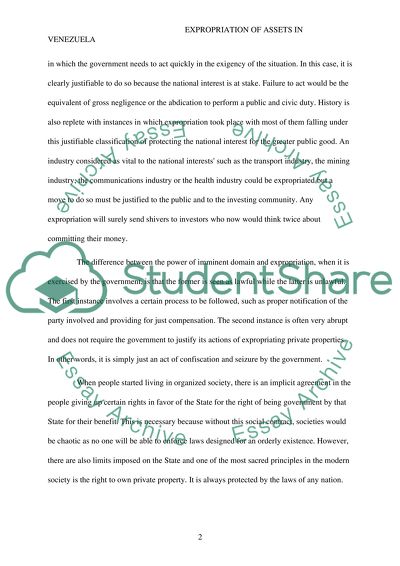Cite this document
(“Expropiation of Assets in Venezuela Essay Example | Topics and Well Written Essays - 1250 words”, n.d.)
Retrieved from https://studentshare.org/history/1435587-expropiation-of-assets-in-venezuela
Retrieved from https://studentshare.org/history/1435587-expropiation-of-assets-in-venezuela
(Expropiation of Assets in Venezuela Essay Example | Topics and Well Written Essays - 1250 Words)
https://studentshare.org/history/1435587-expropiation-of-assets-in-venezuela.
https://studentshare.org/history/1435587-expropiation-of-assets-in-venezuela.
“Expropiation of Assets in Venezuela Essay Example | Topics and Well Written Essays - 1250 Words”, n.d. https://studentshare.org/history/1435587-expropiation-of-assets-in-venezuela.


